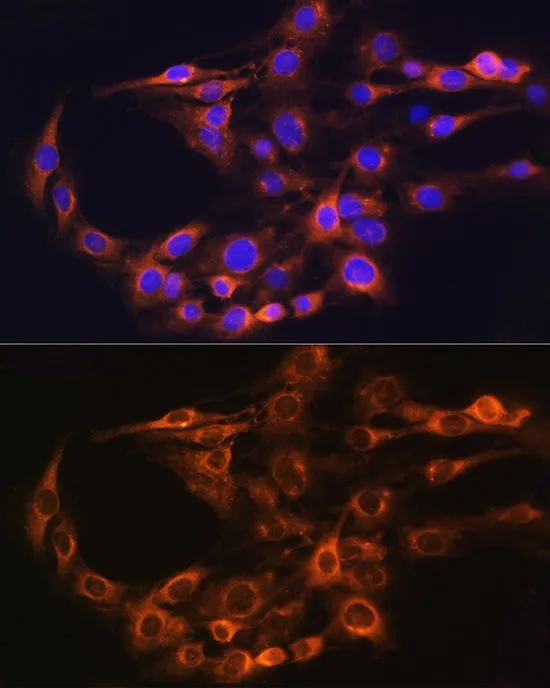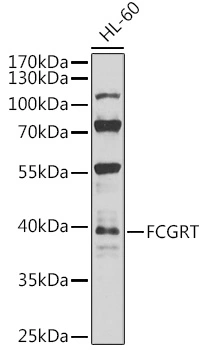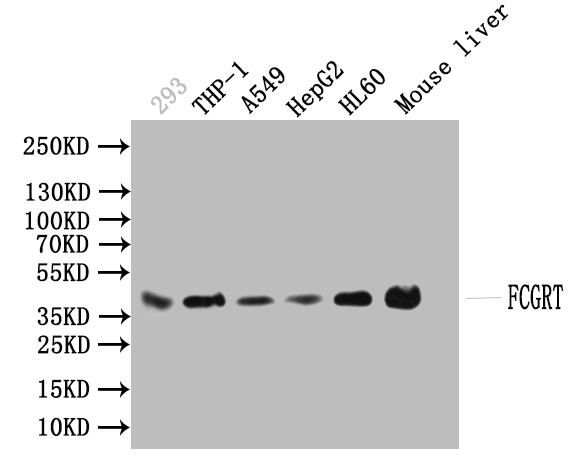
ICC/IF analysis of C6 cells using GTX64528 FCGRT antibody. Blue : DAPI Dilution : 1:100
FCGRT antibody
GTX64528
ApplicationsImmunoFluorescence, Western Blot, ImmunoCytoChemistry
Product group Antibodies
ReactivityHuman, Rat
TargetFCGRT
Overview
- SupplierGeneTex
- Product NameFCGRT antibody
- Delivery Days Customer9
- Application Supplier NoteWB: 1:500 - 1:2000. ICC/IF: 1:50 - 1:200. *Optimal dilutions/concentrations should be determined by the researcher.Not tested in other applications.
- ApplicationsImmunoFluorescence, Western Blot, ImmunoCytoChemistry
- CertificationResearch Use Only
- ClonalityPolyclonal
- ConjugateUnconjugated
- Gene ID2217
- Target nameFCGRT
- Target descriptionFc gamma receptor and transporter
- Target synonymsFCRN, FcgammaRn, alpha-chain, IgG receptor FcRn large subunit p51, Fc fragment of IgG receptor and transporter, Fc fragment of IgG, receptor, transporter, alpha, FcRn alpha chain, IgG Fc fragment receptor transporter alpha chain, heavy chain of the major histocompatibility complex class I-like Fc receptor, immunoglobulin receptor, intestinal, heavy chain, major histocompatibility complex class I-like Fc receptor, neonatal Fc receptor, neonatal Fc-receptor for Ig, neonatal fragment crystallizable Fc receptor FcRn, transmembrane alpha chain of the neonatal receptor
- HostRabbit
- IsotypeIgG
- Protein IDP55899
- Protein NameIgG receptor FcRn large subunit p51
- Scientific DescriptionThis gene encodes a receptor that binds the Fc region of monomeric immunoglobulin G. The encoded protein transfers immunoglobulin G antibodies from mother to fetus across the placenta. This protein also binds immunoglobulin G to protect the antibody from degradation. Alternative splicing results in multiple transcript variants. [provided by RefSeq, Apr 2009]
- ReactivityHuman, Rat
- Storage Instruction-20°C or -80°C,2°C to 8°C
- UNSPSC41116161







